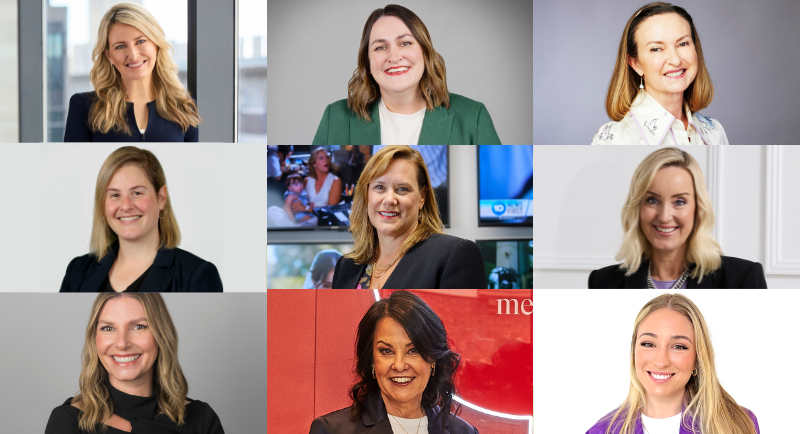International Women’s Day (IWD) celebrates the social, economic, cultural, and political achievements of women and embraces a world free of bias, stereotypes, and discrimination. A world that’s diverse, equitable, and inclusive.
For Australia’s media leaders, the occasion serves as a reminder of the importance of closing the gender pay gap, recognising your own strength and potential, supporting women in the industry and the wider importance of diversity, inclusion and equality in the workplace.
Women leaders from media companies across Australia shared their thoughts, words of wisdom and outlooks on womanhood in the industry with Mediaweek.
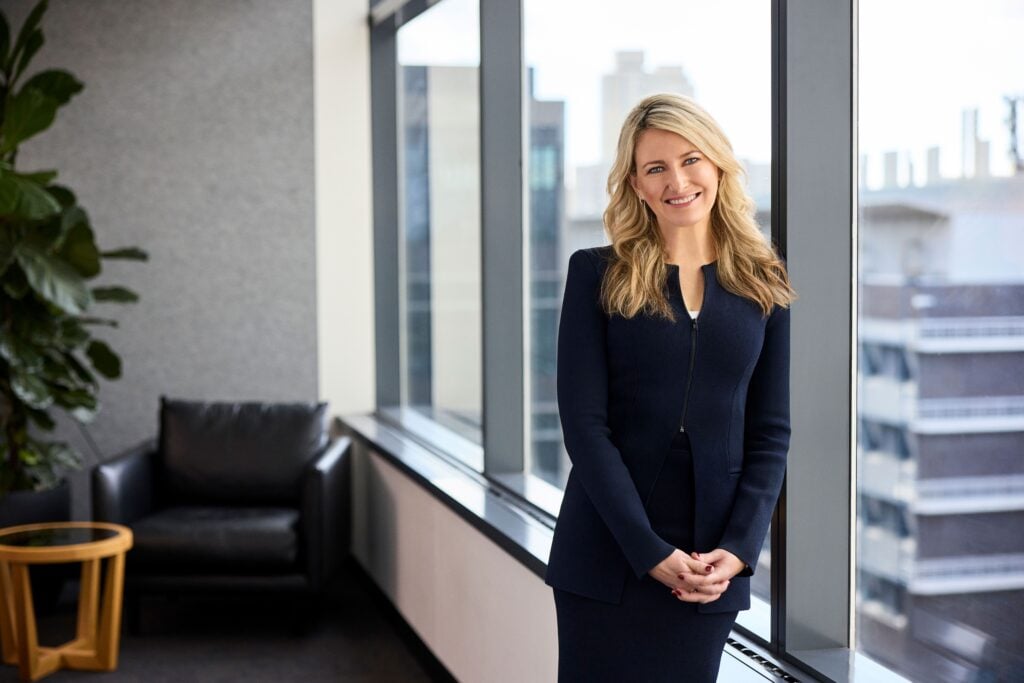
Lucinda Gemmell
Lucinda Gemmell, chief people and culture officer, Seven West Media
What was the best piece of advice you have been given in your career?
Slow down to move faster. Develop strategy, horizons and milestones and the execution of strategy moves quickly.
Throughout your career, have you seen a big shift in the representation of women in the industry?
Earlier in my career, I was appointed in the only woman role at the leadership level in the company. Now, similar to Seven West Media, women make up 46% of leadership roles.
How is your organisation and the broader industry tracking in terms of diversity and inclusion?
Seven West Media was the first media company named an Employer of Choice for Gender Equality, and we are one of only 115 organisations to hold the citation. We have extremely strong female representation across the business, with 48% of our workforce being female.
In our newsrooms, for example, this gender diversity enables us to draw on a wide range of perspectives and experiences to connect with our audiences. When we look at leadership, the majority of our senior leadership roles in the News department are held by women. We also have strong female leaders in our Sales department.
In terms of how we are tracking, gender equality is a key focus for Seven West Media. We continue to make progress. Through our partnership with UN Women for International Women’s Day, our support of women’s sports – for example, AFLW, women’s cricket and the Matildas – and our partnership with the AFL and its “Workplay” program, we continue to find ways to find relevant and engaging ways to support women in our workplace and bring great new female talent into the business.
We are increasingly focusing on ensuring that women across the business at different stages of their careers, in different locations and across different departments are being given mentoring opportunities that support them. Our Spark mentoring program is extremely popular and successful example of where were consider DEI in our internal programs of work, with half the mentors being female and 60% of our mentees being female.
What small but impactful ways do you challenge gender bias and inequality in your daily life to empower yourself?
I always say “yes” to requests to provide support and mentor women at all stages of their career.
What piece of advice would you give young women navigating the industry?
Put yourself forward for opportunities and back yourself.
What do you think 2025 holds for DEI in the industry?
At Seven West Media, we will continue to look at how we drive diversity and inclusion through valuable partnerships. We also want to run internal initiatives that really resonate with our people, provide relevant education, and enable them to actively get involved at a local level. Our leadership programs embrace diversity and inclusion and accelerate our business performance outcomes.
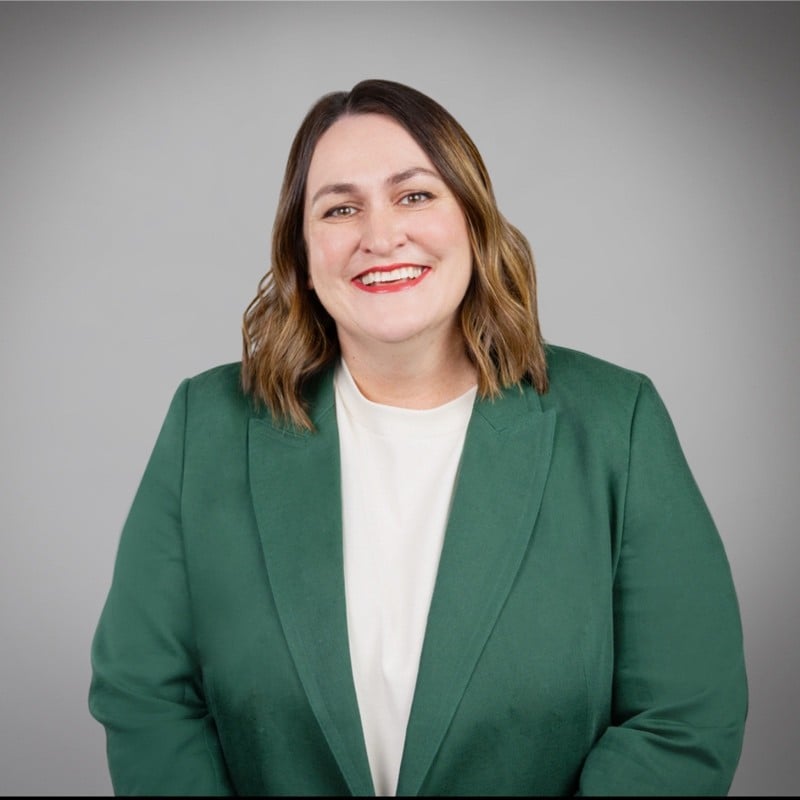
Natalie Harvey
Natalie Harvey, chief executive Officer, Mamamia
What was the best piece of advice you have been given in your career, who was it from, and why has it been so invaluable?
Oh dear there are so many great pieces of advice but being IWD I’ll go with one that i got 15 years ago when I was returning to work from mat leave. My GP said to me “You are clearly ambitious, if you want to run hard at your career while you have a baby/ child/ teenager, you will need to accept that you won’t be able to be 100% incredible at either. Once you can accept that it will actually be a lot easier”. She wasn’t saying to not put in effort, her message was to not be too hard on yourself. I go back to that many times a week, even now. The whole “women can have it all”, well you can but it’s at a cost and that cost is time.
Throughout your career, have you seen a big shift in the representation of women in the industry?
Yes absolutely. Look at Aimee Buchanan, Melissa Hey, Elizabeth Baker, Imogen Hewitt, Lyndelle O’Keefe, Margie Reid, Maria Grivas, Anathea Ruys, Jo McAllister, Lucy Formosa Morgan, Jo Barnes, Sarah Keith…. the list goes on. So many incredible women in roles that had previously been very male dominant. To be honest though it was more than a bit disappointing to see the latest WGEA report showing pretty significant pay disparity still despite so many women in leadership positions.
How is your organisation and the broader industry tracking in terms of diversity and inclusion?
We have two roles to play here at Mamamia. One is how we approach as an organisation and the other is in the content we create.
When it comes to people/ talent, diversity is explicitly included as a key dimension in talent search briefs, seeking talent of all ages and cultural backgrounds across various verticals. I believe that as an industry we have a big job to do here and that’s across age, gender, cultural background etc. I don’t think we are reflective of Australian Society but that also means there is enormous opportunity.
From a content perspective, if you want to be relevant to Australian’s and in particular Women, you need to represent a broad cross section of Australian society. Age, Culture, Background, Region, Size. We don’t claim to be perfect and we have more work to do but it is a very big consideration for us. Our teams are encouraged to ensure we have diverse representation in content across our whole ecosystem.
What small but impactful ways do you challenge gender bias and inequality in your daily life to empower yourself?
By speaking up about it. A lot of women are afraid to talk about it for fear of being labeled a feminist or some backlash. It’s pretty hard to argue that people should get paid the same or get the same opportunity despite their gender, age, cultural background etc.
What piece of advice would you give young women navigating the industry?
Bring your whole self to work. Don’t hide your personality and speak up when you have something to say. Don’t try to play the work game like a man – that’s probably more for senior women who have only had male role models.
What do you think 2025 holds for DEI in the industry?
Gosh, more progress I hope. I think there should continue to be a light on ageism in the industry as well which not only impacts Women but I’d suggest does impact them more. Have a look around at the publisher side of the industry, there are not that many women over 55 in the industry in the most senior roles in their organisation. There are few but nowhere near as many men. I’d like to hope in 2030 we see a bit more of an even split of gender in senior roles on the publisher side.
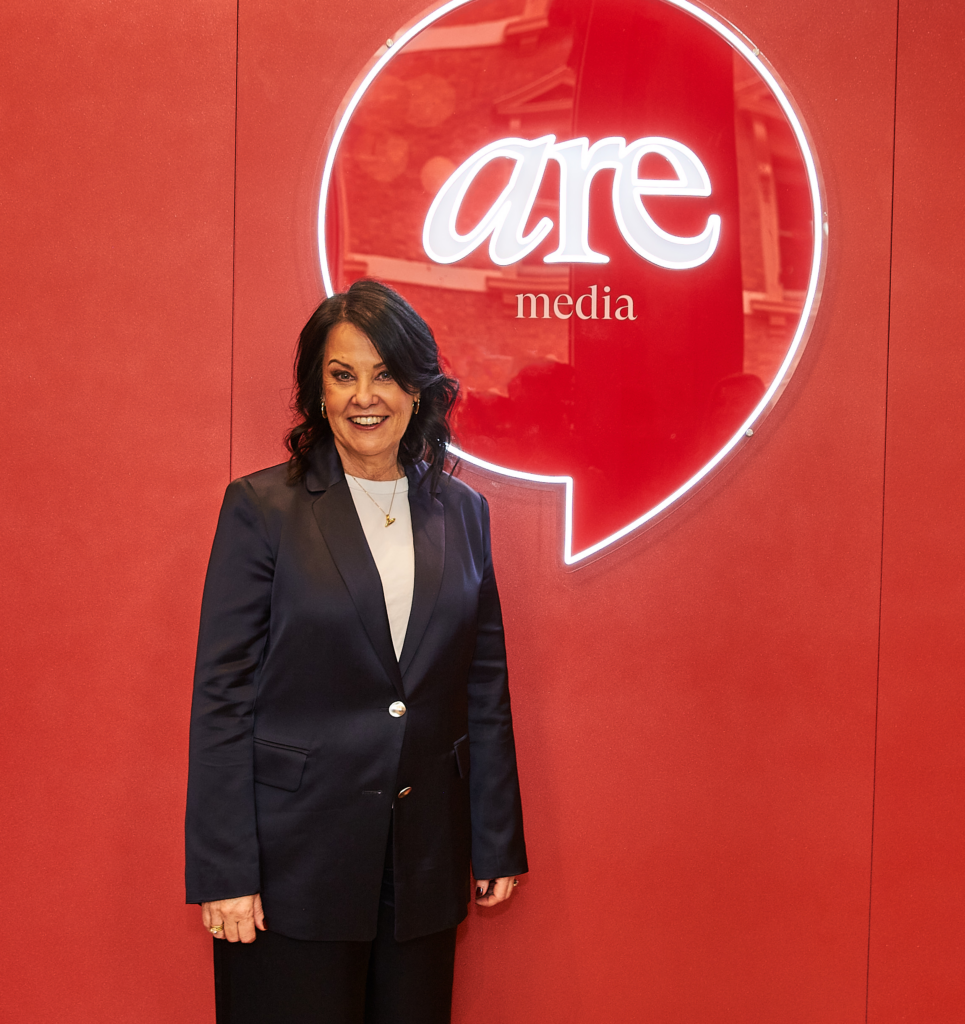
Jane Huxley
Jane Huxley, chief executive officer, Are Media
What was the best piece of advice you have been given in your career, who was it from, and why has it been so invaluable?
I’ve been fortunate enough to have an entire smorgasbord of mentors who have given so much to me over my career. The lesson that stands out the most was the ability to learn not take anything (at work) personally. The “separation of the head and the heart” – although both are necessary – can help remove emotion and drive clarity and awareness that power resilience. It’s a learned skill that can take some time to develop (truth is you never stop learning this one), and I credit this as a springboard into some amazing companies and roles.
Throughout your career, have you seen a big shift in the representation of women in the industry?
Sadly, not as much as I’d like to have seen. There are some amazing women in media who are doing extraordinary work, but there are just not enough of them in senior or CEO roles. I’m sad for my daughters that we are still discussing the same issues of gender pay gap, unequal career advancement, work-life balance and care responsibilities, and access to leadership opportunities. While progress is happening, we need to continue to push for systemic change, culture shifts and stronger networks of sponsorship for women in business.
How is your organisation and the broader industry tracking in terms of diversity and inclusion?
At both an industry and company level we are tracking better in some areas than others. There’s growing recognition that diversity isn’t just about gender; it includes race, age, disability, neurodiversity, and socio-economic background. However, as I mentioned, representation at the top still lags behind. At Are Media, we’ve spent some time putting together committees or steering committees that oversee decisions to ensure that a lens of equity and fairness has been applied to decision making such as hiring or promotions. We try to call out bias during our considerations and are consistent with transparency across the organisation for equal access.
What small but impactful ways do you challenge gender bias and inequality in your daily life to empower yourself?
This is a great question. It’s often the small, consistent actions rather than grand gestures that create meaningful change. I work hard be a role model for the next generation, not only through mentoring or sharing lessons I’ve learned, but also by being seen to lead confidently and manage challenges. Representation matters. When working with our teams I always try to call out statements that can unintentionally weaken a position, such as starting sentences with an apology, or “I could be wrong” or “can I ask a dumb question”. Please stop doing that! It’s unnecessary and can serve to undermine you. Please ask someone to point out the habit if I am describing you.
What piece of advice would you give young women navigating the industry?
This might be incredibly controversial, but do not underestimate the importance of being physically in the office! When you are starting out in your career, so much of what you learn comes from watching and listening and frankly, this type of development cannot be done remotely. Key to building your career will be forming in-person relationships with those around you, particularly leaders and peers in your business. Decisions about you and your career are always made when you are not in the room, and if you don’t have relationships to support you, you won’t be as visible as you will need. I can tell you that with hybrid and remote working more commonplace, there has never been a better opportunity to move ahead with velocity, simply by showing up.
What do you think 2025 holds for DEI in the industry?
We are at a crossroads with DEI in 2025. Progress has been made, but the challenge now is maintaining momentum beyond surface-level commitments. Economic and political pressures could threaten the gains we’ve made, with budget cuts making diversity seem like an expendable initiative rather than a business imperative. This year will reveal which organisations are truly committed to lasting change and which ones backtrack when the pressure is off.
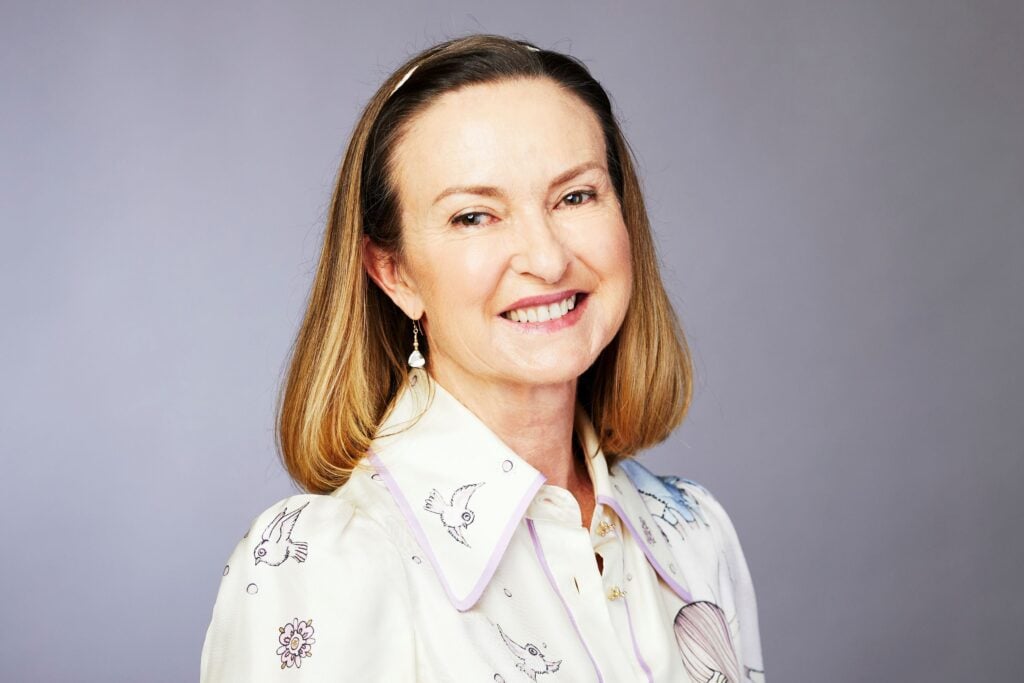
Pippa Leary
Pippa Leary, managing director and publisher free news and lifestyle, News Corp Australia
What was the best piece of advice you have been given in your career, who was it from, and why has it been so invaluable?
There was a time early on in my career when I hesitated to take on more senior roles because I doubted my finance skills. My boss at the time gave me some great advice that has stuck with me. He said you don’t need to be perfect in every area of leadership – what matters is recognising where you need support and building a team with strengths that complement yours. That moment really changed my perspective and was invaluable to my career trajectory.
Throughout your career, have you seen a big shift in the representation of women in the industry?
While I think there is still plenty to be done to elevate women in the industry, things have certainly improved since I started my career. These days there are many women in leadership roles.
At News Corp Australia we have many female leaders on both the commercial side of the business and the editorial side. When I think about our biggest event of the year, D_Coded, which starts next week, the majority of presenters on stage will be smart, fearless, inspiring women.
For me personally, as a wife and mother, I am fortunate to have a supportive partner. My husband works full-time, but with the flexibility of working from home three days a week. This has made ‘the juggle’ much more manageable.
What small but impactful ways do you challenge gender bias and inequality in your daily life to empower yourself?
I’m really committed to creating a workplace where every team member feels valued, included and empowered to reach their full potential. I believe in embracing diverse perspectives and experiences, ensuring equal opportunities for growth and advancement at every level.
A few months ago, I introduced a new recognition program to celebrate the full spectrum of contributions within our team. One award highlights those who champion inclusivity and builds team morale, another honors those whose behind-the-scenes efforts are crucial to our success, and another encourages innovation and the courage to embrace change.
These awards are just a small way of showing that everyone’s contribution matters and that, together, we all play an essential role in our shared success.
What piece of advice would you give young women navigating the industry?
My best advice is to be authentic and stay true to yourself. I know it can be tempting to follow all the management theories about adapting to every situation and constantly flexing your style but I’ve learned that authenticity is magnetic. I’m drawn to people who are genuine and I steer clear of those who aren’t. It brings far less drama into your life and, in the long run, leads to a more fulfilling and successful career.
What do you think 2025 holds for DEI in the industry?
While the debate around DEI may be more contentious in the U.S. our core value of fairness and ‘a fair go’ extends across both the workforce and society. Diversity in thinking is critical for business growth and opportunities must be equal for everyone.
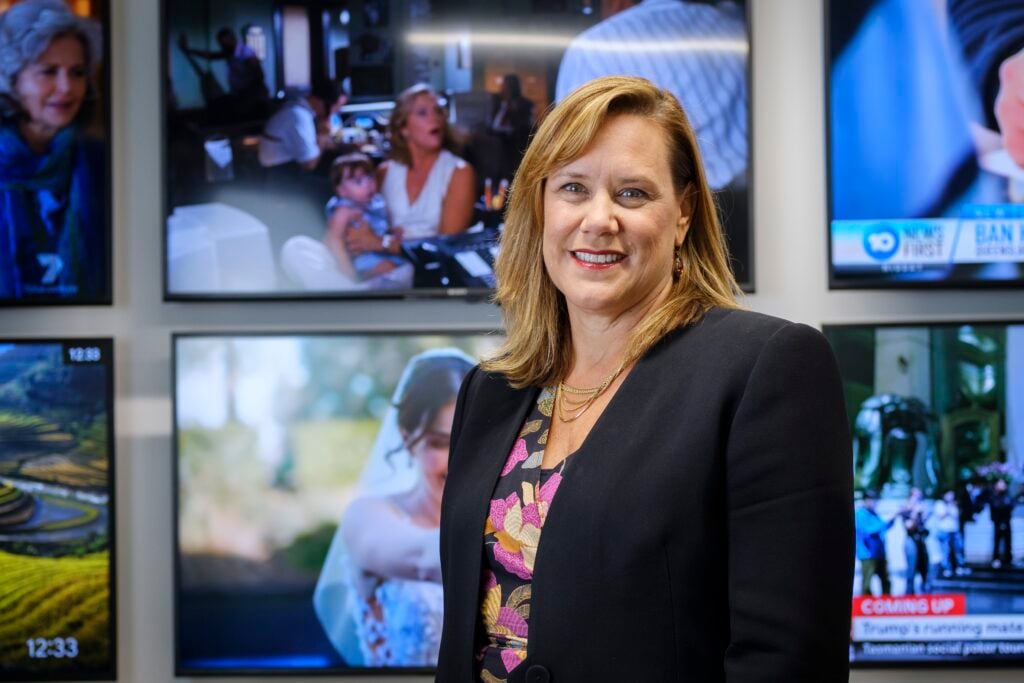
Karen Halligan
Karen Halligan, CEO, OzTAM
What was the best piece of advice you have been given in your career, who was it from, and why has it been so invaluable?
Early in my career, someone advised me that the best way to get ahead was to excel at the role of the person I report to, making it impossible for them not to promote me. This approach has kept me focused on future roles, identifying responsibilities I could take off my manager’s plate, and being proactive. As a result, I’ve consistently thought ahead and sought opportunities to contribute more strategically. I feel very fortunate for that advice to have been given to me early on as it has really impacted my entire approach. It was from the CEO in my first agency role.
Throughout your career, have you seen a big shift in the representation of women in the industry?
The answer is both yes and no. On the positive side, there is a growing focus on creating opportunities for women across many organisations, and I see this reflected in our sector. We have more support for mentoring and training programs, greater transparency regarding the pay gap, and stronger initiatives to create balance. Additionally, we have some incredible female role models in our industry, such as Aimee Buchanan, Gai Le Roy, and Sophie Madden. Senior role models are critical because “to want to be it, you need to be able to see it.”
However, significant challenges remain. Unfortunately, there are still instances of “jobs for the boys,” where roles are not openly advertised, and the recruitment process lacks transparency. When examining the pipeline to senior roles, we still see an inverted pyramid. There are more women at entry levels, but their representation declines as they progress through their careers. To achieve more senior women leaders, we need a larger pool of women in feeder roles leading to the C-suite.
Moreover, it’s essential to continue addressing barriers that hinder women’s career advancement. This includes tackling unconscious bias, ensuring equal pay, and providing flexible work arrangements to support work-life balance. By creating a more inclusive and supportive environment, we can encourage more women to pursue and achieve leadership roles.
How is your organisation and the broader industry tracking in terms of diversity and inclusion?
At OzTAM, we are a small team, and I am pleased to say we have equal male/female representation across our team and a balanced Leadership Team. We also have strong cultural representation and offer flexible work arrangements. It is, however, easier for smaller organisations to achieve this focus.
At a broader industry level, there is still a long way to go, and progress is too slow. The gender pay gap in the Australian media sector remains a significant issue. According to the Workplace Gender Equality Agency (WGEA), the national average gender pay gap across all industries is 21.8%. In the media sector, the pay gap varies widely among companies, but overall, women in the media sector earn an average of 78 cents for every dollar earned by men.
I believe the best way to drive progress is through full transparency on the numbers. Releasing statistics to track change is crucial. Unfortunately, recent data does not paint a great picture, including the fact that women make up 49% of the media workforce, they hold only 30% of chief executive and managing director roles. Is it good enough???? My view is no.
What small but impactful ways do you challenge gender bias and inequality in your daily life to empower yourself?
As a mother of three daughters, I can’t help but think about their futures when I consider this issue. The current statistics on the rate of change are disheartening—at this pace, it could take decades (current estimates suggest up to or beyond 50 years) before women achieve equal pay.
For me, leaning in is not just an option; it’s essential. I’m proud to be a member of Chief Executive Women, I also speak at events on this subject, and I have launched women’s mentoring programs and organised events for up-and-coming talent. This isn’t just something nice to be involved in; it’s a must-do. Waiting decades for equality is simply unacceptable!
What piece of advice would you give young women navigating the industry?
Don’t self-select out when things get tough—this really hit home for me when I had children. Fight for what you need to stay in the industry, whether it’s flexibility, part-time work, or other accommodations. Don’t hesitate to ask for the support you need. Seek out great male allies; there are many out there who are willing to help. Most importantly, own your future and believe in your potential.
What do you think 2025 holds for DEI in the industry?
I have very mixed feelings about this at the moment due to what is happening overseas. I’m concerned that some global media companies are modifying or dropping DEI targets, which is troubling. I hope the Australian market will buck these trends and not implement similar changes here, as we often feel a ripple effect from the US.
I truly want our industry in Australia to take a leadership stance rather than follow. I believe 2025 will be a year where we learn a lot about our commitment to creating a more inclusive and equitable media industry for everyone.
Joanna Robinson
Joanna Robinson, chief marketing officer, The Iconic
What was the best piece of advice you have been given in your career, who was it from, and why has it been so invaluable?
The best piece of advice I’ve ever received in my career and one that’s truly shaped my journey, is to just say “yes.” It’s advice I’ve lived by, and it’s all about embracing opportunities that come your way, even if they push you out of your comfort zone.
The other piece of advice that’s been invaluable is the importance of continuous learning. Recently, I completed the Australian Institute of Company Directors (AICD) Board of Directors course. It took me into new territory, beyond my marketing background and out of my comfort zone into areas like finance, legal, and governance. It was challenging but I loved every minute of it. It reminded me that staying curious and committed to learning is one of the best ways to stay relevant and continue evolving in your career.
Throughout your career, have you seen a big shift in the representation of women in the industry?
I’ve seen a big shift in the representation of women throughout my career and it’s amazing to work at a business with the size and profile of THE ICONIC and see 50/50 male/female representation at the Exec level. The biggest positive change I have seen is more flexible work environments, giving mothers and parents the space to return to work whilst having a family. This is a practical way that we are helping women to stay in the workforce and pursue senior management positions. Of course there is still a way to go, and the recent WGEA report shows women are still on average earning 78 cents to every man’s $1.
How is your organization and the broader industry tracking in terms of diversity and inclusion?
At THE ICONIC, diversity and inclusion are not an optional extra and have been founding values of the business, reflected both in the workplace and in our marketing campaigns. There is of course more progress to be made in this space, and we are constantly reflecting and evolving. We are proud to have recently joined the Shift20 initiative, created by the Dylan Alcott Foundation, which is on a mission to increase representation, inclusion and accessibility in marketing. Through this partnership, THE ICONIC has committed to ensuring its campaigns are representative of people living with disabilities, who account for 20% of the Australian population.
What small but impactful ways do you challenge gender bias and inequality in your daily life to empower yourself?
I believe that challenging gender bias and inequality starts with small, everyday actions that help create an inclusive environment for everyone. I think it is important to always “speak your truth”. For me, it’s about speaking up when I see bias or exclusion, I make it a point to amplify voices that aren’t always heard, especially in spaces where women may not be represented as equally.
I also challenge myself to be aware of my own biases and ensure that I’m always advocating for equal opportunities for all, whether it’s through mentorship, creating diverse teams, or supporting women’s leadership. Empowering myself is about leading by example, staying true to my values, and knowing that every small action can contribute to driving change.
What piece of advice would you give young women navigating the industry?
My advice to young women in the industry is to be authentic, to be kind, and to know your worth – be confident in yourself. Seek out mentors and build a supportive network, and don’t be afraid to take risks or ask for help. Remember, success is a journey, stay resilient, keep learning, and embrace the power of collaboration. Your unique perspective is your strength, so own it.
What do you think 2025 holds for DEI in the industry?
In international politics 2025 is unfortunately shaking out to be quite an unsettling time for DEI and a lot of the hard earned progress that has been made is feeling threatened. I hope this means that in Australia, we double down on supporting minority groups and set ourselves apart from the noise. Certainly at an industry level, I feel confident in the progress of Australian retail and fashion brands as overall, we collectively move to a more inclusive and representative space.
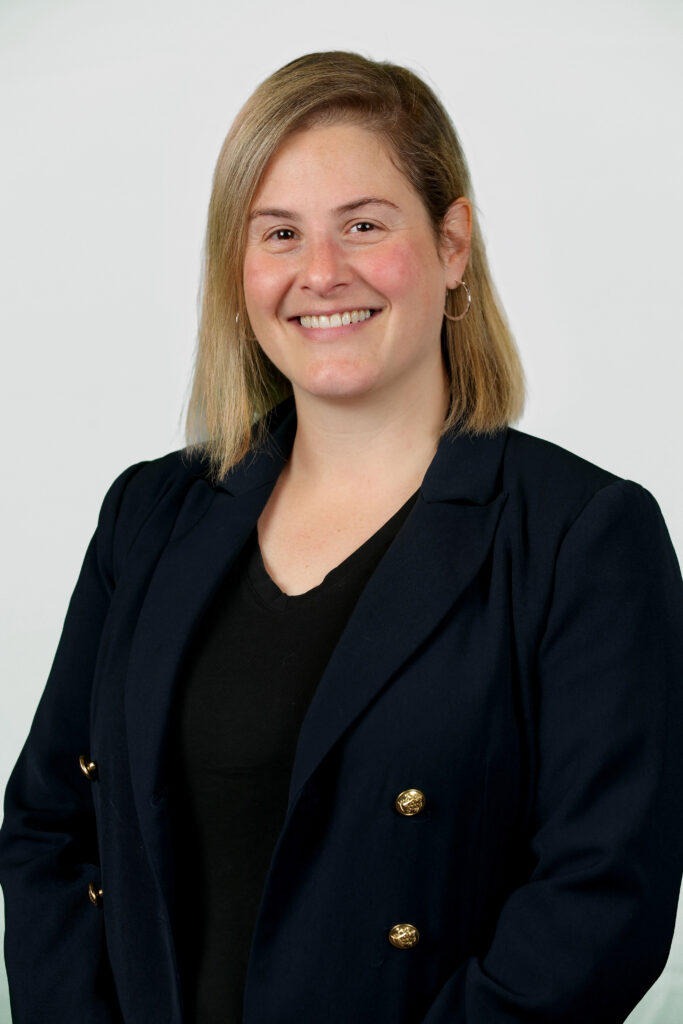
Jodi Rosenthal
Jodi Rosenthal, head of people and culture, QMS
What was the best piece of advice you have been given in your career, who was it from, and why has it been so invaluable?
“Speak up, even if your voice shakes.” This advice came from my beloved grandmother Sybil, who always encouraged me to trust my instincts and use my platform to stand up for myself and others. It reminds me that growth comes from discomfort and change starts with courage – something that she embraced throughout her life. She also had a few other choice motivational phrases, but they’re not fit for publication!
Throughout your career, have you seen a big shift in the representation of women in the industry?
Absolutely. When I first started, leadership teams were overwhelmingly male-dominated, and women often had to work twice as hard to be seen and heard. In recent years there has been a conscious effort to support and promote women, with initiatives like mentorship programs, leadership programs, flexible work arrangements, paid parental leave policies and succession planning to name a few, which are helping to drive change. While there is undoubtedly still work to do, the progress we have made is encouraging – and now is the time to ramp it up.
How is your organisation and the broader industry tracking in terms of diversity and inclusion?
QMS continues to make progress by prioritising equal opportunities, embedding inclusive policies, and ensuring women have a seat at the table. However, true diversity and inclusion go beyond numbers – it’s about creating an environment where different perspectives are valued and respected. The media industry is making strides, but ongoing commitment is needed to turn intention into lasting impact.
What small but impactful ways do you challenge gender bias and inequality in your daily life to empower yourself?
I believe that small actions create ripple effects, and collective efforts lead to meaningful change, so the more we call out inequality and bias, the harder it will be to sustain. Some examples that I use include:
• Calling out unconscious bias in meetings and conversations in a productive and respectful way.
• Advocating for women’s voices to be heard, whether it’s amplifying a colleague’s idea or ensuring credit is given where it’s due.
• Mentoring and supporting other women in their career journeys.
• Setting boundaries and challenging outdated expectations around work-life balance or gender stereotypes.
• Asking someone to explain why a clearly misogynistic / sexist joke is funny.
What piece of advice would you give young women navigating the industry?
• Find your champions: Seek mentors, sponsors and allies who will support and advocate for you.
• Back yourself: Don’t wait for permission to take up space; your ideas and contributions matter.
• Negotiate early and often: Know your worth and don’t shy away from difficult conversations around pay, promotions and opportunities.
• Be adaptable: The industry is always evolving, so embrace learning and don’t be afraid to pivot.
What do you think 2025 holds for DEI in the industry?
I think 2025 will be a pivotal year for DEI in our industry and many others. In the US, we’ve seen a shift in DEI policies, with many businesses rolling back their commitments due to political and legal pressures, which is extremely concerning as it raises the question about whether DEI was ever truly embedded or just seen as a box-checking exercise.
However, I remain hopeful that in Australia – and in our industry – our leaders across politics, business and the broader community will continue to champion DEI, not because they are obligated to, but because they genuinely believe in its importance.
Real progress comes when DEI is woven into the fabric of company culture, leadership decisions and policies, rather than treated as a trend. If we can maintain this momentum, 2025 could be a year where we prove our commitment to gender equality and diversity in a way that is lasting, meaningful and impactful.
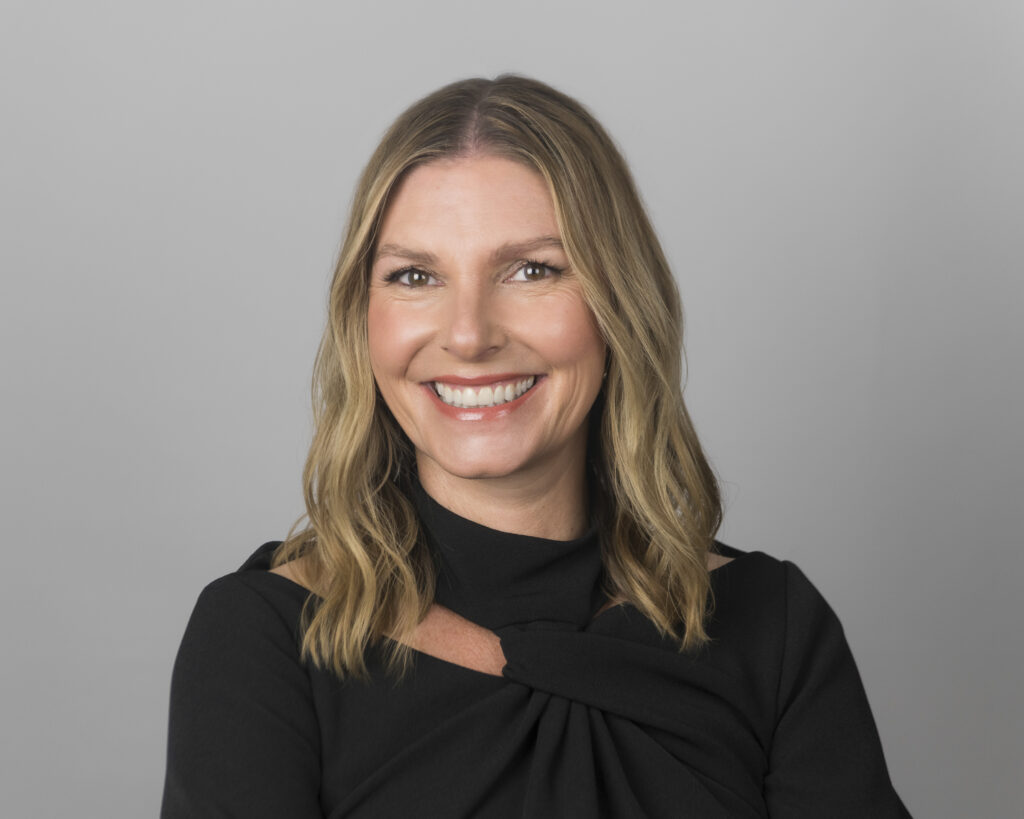
Elizabeth McIntyre
Elizabeth McIntyre, CEO, Outdoor Media Association
What was the best piece of advice you have been given in your career, who was it from, and why has it been so invaluable?
The best piece of advice I received in my career came from team owner and CEO Roland Dane, Triple Eight Racing when I was at Ford Motor Company with V8 Supercars.
While watching his team perform at a pit stop, I mentioned a member of his team that was pleasant to work with and he sighed as he replied, “I have to let him go.” I asked why, and he explained that the person wasn’t fulfilling their role. Keeping him on the team would send a message that it’s acceptable to underperform to other team members, which would ultimately hurt team morale and performance.
This advice taught me that as a leader, it’s essential to hold everyone to the same high standards. Allowing poor performance to slide can undermine the entire team’s success.
Throughout your career, have you seen a big shift in the representation of women in the industry?
While we’ve made progress in some areas, we are still struggling for a true representation in leadership roles. The recent Women in Media dataset highlights this, revealing that while women now make up 49% of the media workforce, only 30% of CEO and Managing Director positions are held by women. These figures reflect both the progress we’ve made and the work that still needs to be done if we are to truly close the gap on leadership and achieve gender equality.
How is your organisation and the broader industry tracking in terms of diversity and inclusion?
Diversity and inclusion begin within. At OMA and MOVE, we take pride in maintaining a culturally and gender-balanced team. This diversity of perspectives provides better discussions and outcomes in the long run. Many of our members also have their own programs and initiatives in place, including reconciliation plans and active support of women in media networking groups. It was encouraging to see several of our members also supporting Mardi Gras and participating in the recent parade, further highlighting their commitment to inclusivity.
Diversity and inclusion start from within. At OMA and MOVE, we take pride in maintaining a culturally and gender-balanced team, as this diversity of perspectives encourages better discussions and outcomes over time. Many of our members also have their own programs and initiatives in place, including reconciliation plans and active support for women in media networking groups. It was encouraging to see several of our members supporting Mardi Gras and participating in the recent parade, further demonstrating their commitment to inclusivity.
What small but impactful ways do you challenge gender bias and inequality in your daily life to empower yourself?
Challenging gender bias often starts with small, everyday actions. I make a conscious effort to be present and seize opportunities that not only benefit me but also have a lasting impact on other women and the industry. This year, I’m honoured to be part of the IMAA’s Female Leaders of Tomorrow Programme, a mentorship initiative designed to help future female leaders build confidence and address the equity gap. Additionally, by judging industry awards, I’m able to champion diverse talent, ensuring that a variety of voices are heard and valued in our industry.
What piece of advice would you give young women navigating the industry?
I encourage young women to step outside their comfort zone and actively seek opportunities for growth. Personal development is key, whether that’s through reaching out to someone on LinkedIn, attending workshops, or simply taking advantage of the many free online resources available. Always be open to feedback, as it’s essential for growth, and don’t be afraid to ask for guidance or advice from others in the industry. Networking is also crucial, especially in the media industry, don’t be afraid to reach out to someone for advice. Building relationships with people who can support, inspire, and challenge you is important. But above all, trust in your own abilities, stay resilient, and know that your voice and your perspective are valuable. The industry needs diverse voices, and you have a unique contribution to make.
What do you think 2025 holds for DEI in the industry?
We work in an industry that speaks to a diverse audience, and to do so authentically and successfully, we need diverse voices at every level. While there’s a lot of noise about what companies are and aren’t doing in this space, I believe the real winners will be the ones that not only talk the talk but also commit to supporting a diverse business model long-term. True success in DEI will come from those who integrate it into their core values and operations, not just as a trend, but as a sustainable approach to doing business.
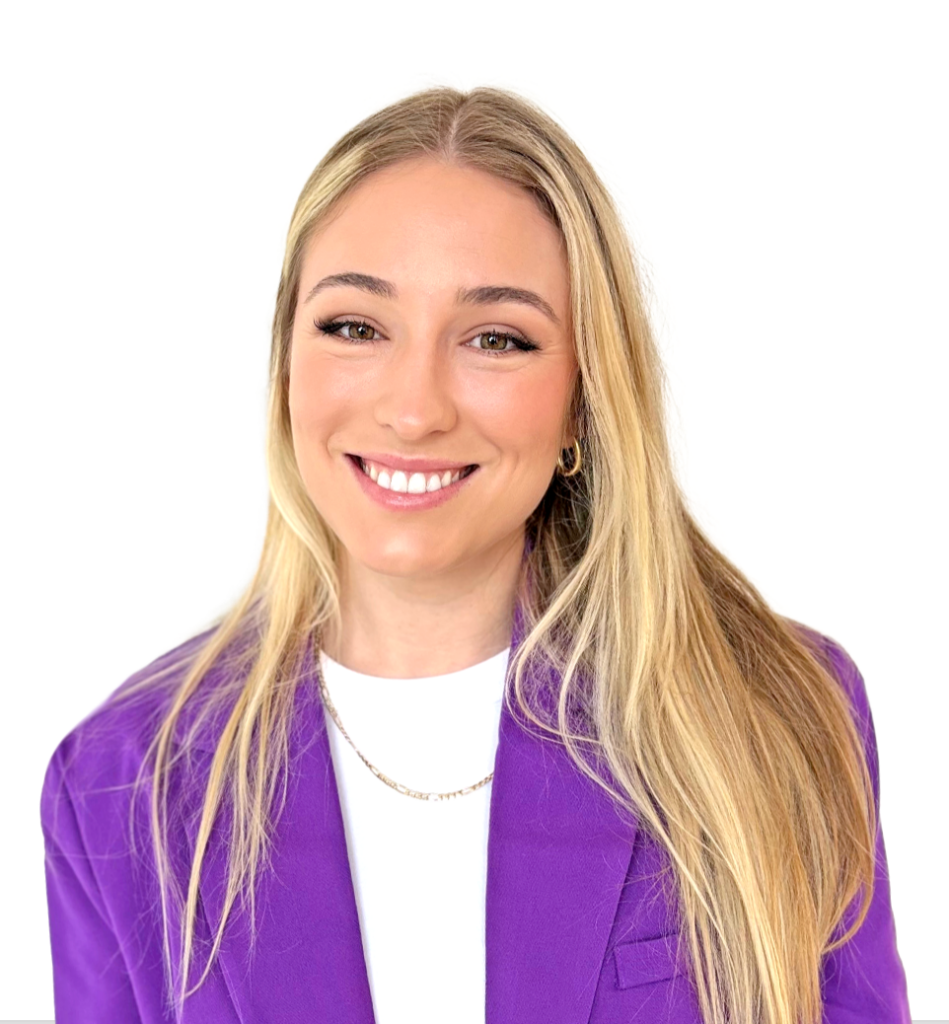
Maddie Basso
Maddie Basso, head of commercial, Yahoo
What was the best piece of advice you have been given in your career, who was it from, and why has it been so invaluable?
The best advice I’ve received came from a boss early in my career: “If you’re the smartest person in the room, you’re in the wrong room.” Growth comes from surrounding yourself with people who challenge and inspire you, and push you to think differently. Stay curious and never settle for “how it’s always been done.”
Want to know a secret? Nobody has it all figured out. Learning is constant, and it’s okay to figure things out as you go. I feel so lucky to be surrounded by people at Yahoo who constantly ask “why?” and “what if?” Their curiosity and drive inspire me every day.
Throughout your career, have you seen a big shift in the representation of women in the industry?
Yes, absolutely. When I started, there was a visible gender imbalance in leadership, but over the years, women have become increasingly empowered in the workplace. Especially in our industry, I’ve seen women rise into well respected senior roles, which sets a powerful example for younger generations.
This is not to say we don’t still have a long road ahead of us, but it’s been incredible to see all these women breaking one glass ceiling after another.
How is your organisation and the broader industry tracking in terms of diversity and inclusion?
Since I’ve been at Yahoo, I’ve seen first hand how inclusion is integral to how we operate.
Our Culture Force, with 34 employee-led chapters around the world, makes Yahoo a place where everyone feels seen and heard. With 11 Employee Resource Groups (ERGs), we’re celebrating diversity and making inclusivity part of everyday life. I’ve also personally taken on a role within Women Inclusion Network (WIN, one of our ERGs) since joining, helping create a safe space for Yahoo women to cultivate professional development within the company, local communities and the technology sector.
Our family leave programs provide essential support, including time off for reproductive wellness, gender reassignment and menstrual health.
Importantly, our male allies at Yahoo actively support and advocate for women, championing inclusive policies. We’re doing our part to increase equity and inclusion within the industry.
What small but impactful ways do you challenge gender bias and inequality in your daily life to empower yourself?
Equal opportunity in many ways comes down to equal confidence. I try to help women (including myself) instill that confidence in whatever way I can. I’m really passionate about fostering open dialogue and driving understanding on topics like gender bias and women’s health.
While it helps to be vocal, you don’t have to be the loudest voice in the room to make an impact. Sometimes, creating safe spaces for these conversations is all it takes.
What piece of advice would you give young women navigating the industry?
Back yourself and be yourself.
You’re always more capable than what you give yourself credit for. If it doesn’t go to plan, failure is not a full stop. Mistakes are an opportunity to learn and grow.
Being a woman is a huge strength – we have so many superpowers and I implore young women not to shy away from them and embrace what makes them unique, or even weird!
What do you think 2025 holds for DEI in the industry?
Looking back to 2020, the lockdown flipped our understanding of gender roles on its head and made career goals more accessible for everyone. Women were given an opportunity to create balance in more than just a tokenistic way and men really stepped up to understand their role in creating equality. As I see it, that’s slowly trickled into work culture.
We’re still pushing for real change – more support, better education, and visible action – but I’m hopeful that if we keep at it, we might one day take a left turn and finally hit ‘Barbieland’ – a world where we’re all ‘Kenough’.
Top image: Lucinda Gemmell, Natalie Harvey, Pippa Leary, Jodi Rosenthal, Karen Halligan, Joanna Robinson, Elizabeth McIntyre, Jane Huxley, Maddie Basso
